- Business Lists ›
- Top Brands ›
- Top 10 Telecom Companies in UK 2015
Top 10 Telecom Companies in UK 2015
Here is a list of the Top 10 Telecom Companies in UK 2015. UK is one of the largest telecommunication market in entire Europe. With a lot of global brands in UK, the market penetration is extremely high in the entire UK. The mobile and broadband penetration in UK is much ahead of the European average, with some of the biggest telecom companies having a stronghold in UK. The services in the sector have grown in leaps and bounces, and would continue to dominate the development proceedings in the UK.
10. Giffgaff
Giffgaff is a mobile telephone network owned by Telefonica with headquarters in Uxbridge, UK.
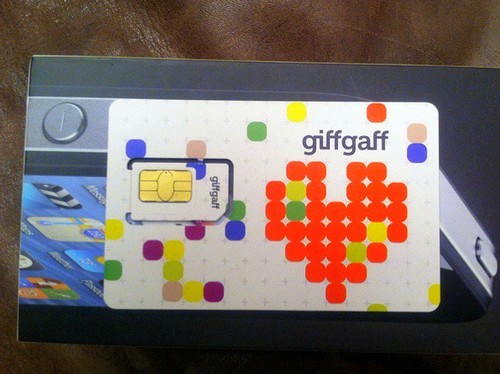
Image: flickr.com/photos/fsse-info/
Giffgaff comes from the Scottish slang for mutual giving – a true reflection of how the company interacts with its customer. It is a mobile virtual network operator (MVNO) i.e. it does not own any wireless network infrastructure but gets bulk access to network services of another operator. Presently, Giffgaff uses the network of another prominent telecom operator of UK, O2. Founded on 25th November, 2009, the company has scaled up rapidly and has won many accolades in the short period it has been functional. In the forst year of operation, Giffgaff won 2 industry awards – Forrester Groundswell Award and the Most Innovative Community Award at the Social CRM Customer Excellence Awards. The company has recently broke-even in 2013 and generated profits of £2m after making a loss of £28.8m the previous year.
It’s a unique company in terms of its offering and product development process through its customer engagement. During launch, it provided a prepaid SIM card with all the regular features of 2G/3G mobile network. Gradually, it tapped onto its online community and forums. It led to the widely popular Goody Bags concept apart from other offerings. It stands for the mutual giving concept by rewarding points for contributions made on the Giffgaff forum. These points are exchanged for cash, twice a year and paid out to the customers. Such is the strength of the online forum that there is no customer service phone lines. All the complaints are handled by agents via an online message board system, with a response time of a maximum of 24 hours. It has moved from the standard size SIM cards to micro SIMs making it an official Apple carrier from May 2014. Limited, though it is, the advertising campaigns have generated quite a bit of controversies. However, that won’t stall the rising fortunes of the company which has create d a space for itself so quickly in a saturated market like UK.
Revenues: £ 138m
Subscribers: 1.205m
9. Lycamobile
Lycamobile is a mobile telecommunication services operating as MVNO in 19 countries.
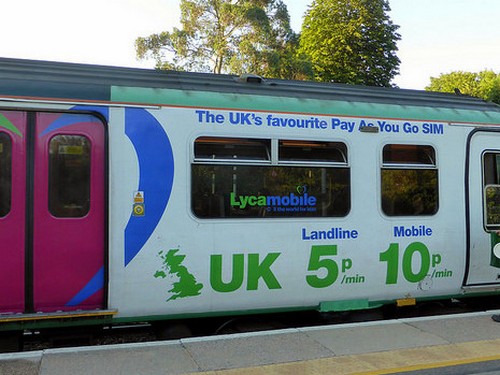
Image: flickr.com/photos/99279135@N05/
Founded by present day Chairman, Subaskaran Allirajah, with a vision to create a benchmark model for MVNOs and creating a global number one mobile international calling brand. Its target audience is international ethnic and immigrant communities and the spectrum of services around low cost international call. It’s an amalgamation of 7 group companies viz.
• Lycamobile: The majority of its revenues come from selling international as-you-go SIM cards.
• Lycamoney: This entity handles the credit/debit card facility “Lycamoney Prepaid MasterCard” program under a license from MasterCard International.
• Lycaremit: As the name suggests, it handles the platform by which expatriates can send remittances to their home countries.
• Lycafly: An unrelated diversification for the telecomm company, this arm of Lycamobile act as online travel company specialising in offering cheap flights & holidays to predominantly Asian destinations.
• Lycatalk: This arm handles the VoIP services providing high quality long distance pinless call services
• Toggle mobile: It provides SIM for travellers giving the facility of low roaming charges and having access in over 220 countries.
• Lycatel: It is focussed in selling calling cards to wholesalers giving a plethora of options of calling rates for different destinations.
Revenues: $ 1.68 billion
Subscribers: ~12 million
8. Talk Talk Group
A public limited company, TalkTalk Telecom Group (TTG) is a quadraple player in UK telecommunications business providing mobile telephony, television and broadband services.
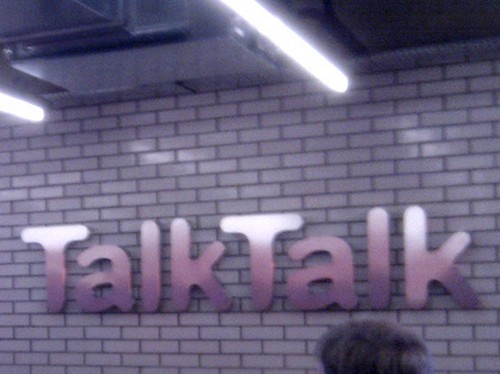
Image: flickr.com/photos/markhillary/
It’s headquartered in London, UK. TTG is listed in the London Stock Exchange and is a constituent of the FTSE 250 Index. In November 2002, Carphone Warehouse acquired Opal Telecom and introduced the TalkTalk brand to the market in January 2003. The broadband service was launched in November 2004. To tap the expanding opportunities in the telecom market, a separate listed company, TalkTalk was created in March 2010. Recently, in November 2014, it had purchased the ADSL business of Virgin Media and in January 2015, it announced the acquisitions of on-demand entertainment service, Blinkbox and broadband business of Tesco. TTG has announced its intention to change its MVN operator from Vodafone to O2. TTG has focussed aggressively on marketing its brand, at times even featuring celebrities who’ve had endorsed TTG’s competitors.
TTG functions through its 2 group companies catering to retail and business customers i.e. TalkTalk and TalkTalk business respectively
TTG has been involved in various controversies across the years whether it its sales technique of telephone slamming, analysing consumer click-stream data or URL harvesting.
TTG aims to be the leading value for money, integrated fixed and mobile telecom and TV provider in the UK and estimates a 5% revenue CAGR till FY17. In coming years, TTG plans to utilise 6% of its yearly revenue as capex building capabilities to scale up network capacity and create greater synergies between its 4 businesses to enable cross selling. TTG plans to scale TalkTalk business by focussing on the fragmented B2B business and providing a suite of data products for the SME phone and broadband market.
Revenues: $ 2.8 billion
Subscribers: 5.97 million
7. 3(Hutchinson Whampoa)
Owned by Hutchinson Whampoa (HW), 3 is an umbrella brand under which several broadband internet providers and mobile phone networks operate in 10 countries, UK being one.
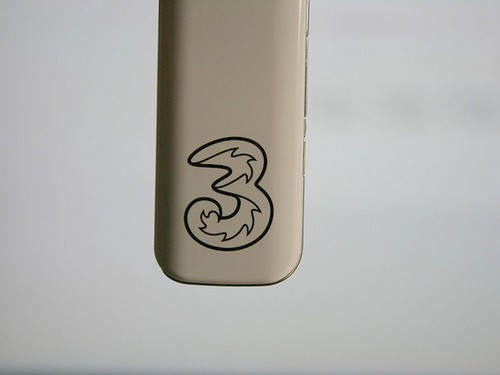
Image: flickr.com/photos/williamhook/
3 has 3 group businesses:
• 3 Group Europe: Fully owned subsidiary of Hutchinson Whampoa
• Hutchinson Telecommunications Hong Kong Holdings (HTHKH): Listed on the SEHK, HW owns 65.01% stake in HTHKH
• Hutchinson Asia Telecommunications (HAT): Listed on the Australian Securities Exchange, HW owns 87.87% stake.
3 provides mobile telephony and broadband internet services. It provides 2G services through Orange’s network infrastructure 3G & 4G services through its own infrastructure. For its roaming services, Orange is the national roaming partner from May 2006.
3 started in UK on 3rd March, 2003 as first commercial video mobile network. Recently, HW announced that it would acquire Telefonica’s British mobile unit O2. As on May, 2015 HW has been able to get more than $4.5 billion funding from 5 investors. The merger will create of the largest mobile operator entity in the UK.
3 had focussed on providing only 3G services when it was introduced, providing patchy 2G services. T-Mobile and 3 launched a 50:50 JV, Mobile Broadband Network Limited to combine the parent companies’ 3G network and complete 3G population coverage. 3 has also been one of the first operators to introduce 4G in the UK. It launched “Feel at Home” programme where subscribers in one 3 home network can use their number in other global 3 networks without any extra charges. This scheme was discontinued in 2009, but re-introduced in 2013.
The management of 3 is betting heavily on O2 acquisition to charge its future growth. Existing plans are aimed at gaining market share in the smartphone, mobile data segments and enhancing customer usage experiences in 4g services at competitive prices.
Revenues: $ 3.22 billion
Subscribers: 10.3 million
6. Virgin Mobile UK
Owned by the international television and telecommunications company, Liberty Global Plc, Virgin Media UK (VMU) provides its services in fixed and mobile telephone, television and broadband services to both retail and business consumers across the UK.
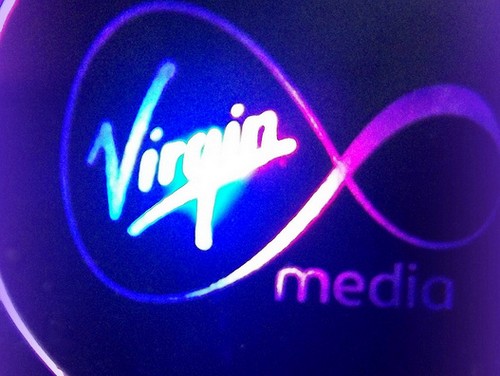
Image: flickr.com/photos/silveraquarius/
It has UK’s most advanced interactive television service and was the first to offer HD TV & VAS through set-top box in Britain. It had also introduced the world’s first virtual mobile network. The entity was formed in March 2006 by the merger of NTL and Telewest and named as NTL:Telewest. In July 2006, the NTL:Telewest acquired Virgin Mobile UK making it the first quadruple play media company in UK i.e. having television, broadband, mobile phone and fixed line phone services. The acquisition deal included a 30 year exclusive branding agreement as a result of which the merged entity was renamed as Virigin Media Inc in November 2006. The company saw a change of hands on 7th June 2013, when Liberty Global Plc acquired it for $23.3 billion. VMU has recently offloaded its ADSL business in November 2014 to TalkTalk Group with customers transferring their service from February 2015.
Presently VMU is fuelling growth by cross-selling post-paid mobile services to existing cable customers. To penetrate the high-end handsets market, VMU has introduced the ‘Freestyle’ proposition which gives the customers flexibility to create split-contract services. It has helped the company to gain 23000 mobile subscribers in the year 2014. Going ahead, VMU plans to undertake major network extension to approx. 4 million more homes retail and business customers till 2020. Greater focus will be on new small office/home office i.e. SOHO and SME with greater requirement for high speed data rather than telephony services. Thus VMU sees growth in integrating synergies across the four areas of telecommunication – results of which have been impressive in the recent past.
Revenues: $ 6.57 billion
Subscribers: ~8 million
5. O2
O2 or Telefonica UK Limited is one of the largest telecommunications provider in the UK in terms of number of subscribers.
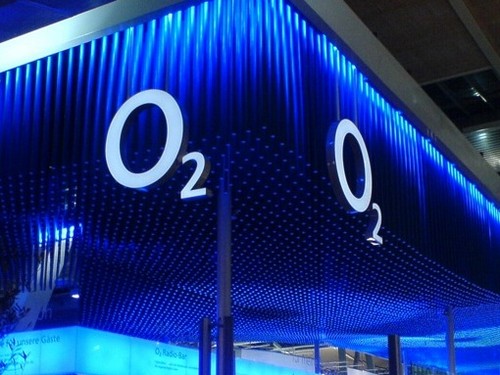
Image: Wikimedia
It’s headquartered in Slough, Berkshire in the UK. O2 provides mobile broadband and telephony internet services to both retail and business users. O2 provides network access to other MVNO to its subsidiaries Tesco mobile and Giffgaff.
It was formed in 1985 as a 60:40 JV between British Telecommunications and Securicor. The shares of Securicor were bought over by BT in 1999. A separate entity O2 was created by BT in June 2002. Telefónica acquired O2 for $27.74 billion. The acquisition brought restructuring in O2’s administration and strategic focus. Since 2007, O2 has diversified its business to financial services – O2 Money and even incorporated NFC technology to supplement this business line. However the NFC initiative roll out was discontinued in 2014, even after months of trial. The broadband business and fixed telephone line was sold off to BskyB on 1st March 2013. The company was again available for acquisition in November 2014 and was finally acquired by Hutchinson Whampoa in March 2015 for approximately $15 billion.
O2 has a strong marketing focus, primarily through sponsorships. It currently sponsors the England rugby team and had a long standing association with the Arsenal football club. It sponsor annual O2 wireless festivals in London and Leeds. The Millenium Dome, an exhibition space located in London has been renamed as The O2 Arena, after O2 invested in converting it to an entertainment venue. It has partnered with the Academy Music Group and Live Nation, allowing it to rename music venues and various associated marketing events along with it. It was the mobile operator to be awarded with the Carbon Trust Standard for its efforts to reduce carbon footprint.
The future landscape for the company depends on the strategic focus of its holding company Hutchinson Whampoa.
Revenues: $ 9.83 billion
Subscribers: 24.73 million
4. EE
EE or Everything Everywhere, as it was known formerly, is a mobile network operator and internet service provider with headquearters in Hatfield, UK.
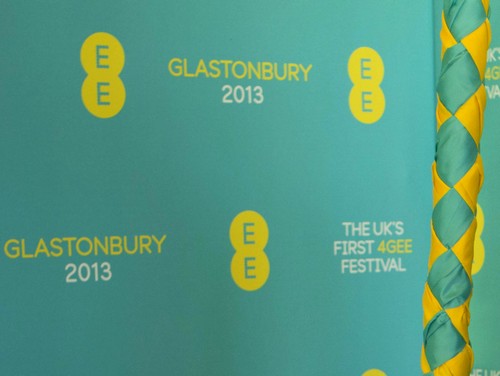
Image:https://www.flickr.com/photos/nrmadriversseat/
Its other area of operations are mobile payments, HD voice calling and retail stores. EE provides network access to MVNO operators like Virgin Mobile UK, The Co-operative Mobile and ASDA mobile.
The origins of the company lies in the merger of the UK businesses of Deutsche Telekom and France Télécom, T-Mobile UK and Orange UK in September 2009. The commercial name Everything Everywhere for the merged entity was announced on 10th May 2010. In September 2012, the EE brand was introduced as an umbrella brand for the 3 entities – EE, T-Mobile and Orange and the name was changed to EE Limited on 2nd September 2013. Throughout 2014, EE began phasing out the Orange and T-Mobile brands from its portfolio. In December 2014, it was announced that BT Group is in talks to acquire EE for approximately $ 20 million. The deal which is pending regulatory approvals, is expected to be confirmed in March 2016. EE’s service has been low on customer experience being named as the most complained-about phone and broadband provider by regulator Ofcom in May 2015. It has also been accused for silencing customer complaint on social media. It allegedly deleted complaint posts from their Facebook page.
The future plans for the EE is adding 71000 customers through Life Mobile acquisition, and a restricting of its product portfolio by excluding one-off items. It aims to improve customer experience as well after the Ofcom report and the social media controversy.
Revenues: $ 9.87 billion
Subscribers: 30.94 million
3. Vodafone
Vodafone is one of the world’s largest telecommunications service companies with operations and networks in over 60 countries.
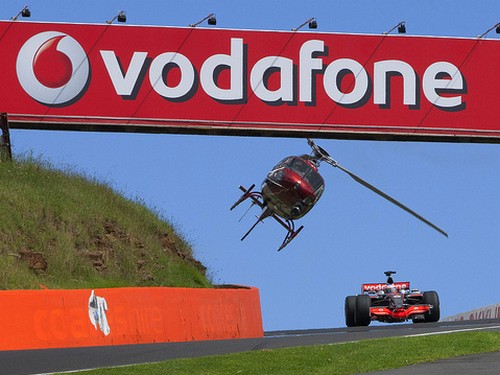
Image: flickr.com/photos/nrmadriversseat/
It provides fixed line, mobile telephony, internet and digital television services in the UK. It is listed in the London Stock Exchange and is a constituent of the FTSE 100 index. It has recently got listed on NASDAQ. Interestingly, the name is taken from ‘VOice DAta FONE’ – “to reflect the provision of voice and data services over mobile phones”.
The history of Vodafone goes back to 1984, when its parent company was incorporated as Racal Strategic Radio Limited after a merger of military radio manufacturers Racal Electronics PLC and international telecom and media company, Millicom. After that the company has had a host of acquisitions, the acquisition of controlling stake in Vodafone India. Vodafone has recently sold 45% stake in Verizon Wireless to generate $130 billion. The Group operations are split into 2 divisions on the basis of their geographies – Europe and AMAP i.e. Asia, Middle East and Asia Pacific. The group has 20 subsidiaries, with Vodafone UK being one of their largest both in terms of revenue and user subscriptions.
Vodafone’s strategy has focussed on 4 key growth areas and targets for the coming years:
• Consumer Europe: To become a leading mobile data provider
• Unified communications: To provide converged services in all key European markets
• Consumer emerging markets: To be the first choice in data for these markets.
• Enterprise: To be a full service provider for business consumers
Vodafone has started Project Spring to accelerate the strategic priorities by investing in mobile and fixed networks, products and services and strengthening network and service differentiation further.
Revenues: $ 9.98 billion
Subscribers: 19.80 million
2. Sky UK Limited
Sky UK Limited (SUL) or British Sky Broadcasting company, as it was known formerly, is a British telecom company providing fixed line telephony, broadband, television and broadcasting services.
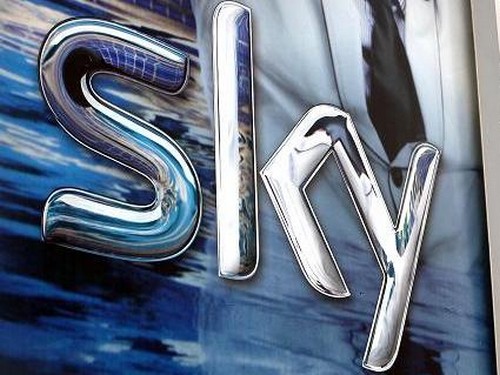
Image: Wikimedia
It’s UK’s largest pay-TV broadcaster and part of the Sky group, representing the UK operations of the parent group. The core business for SUL had been broadcasting and it had expanded to telephony and broadband businesses later on. Its products are:
• Sky: DTH service of Sky
• Sky broadband: Provides broadband and telephony services to 5 million customers in Britain and Ireland.
• NOW TV: Sky’s OTT streaming service, providing low-cost access to the broadcasting content of Sky
SUL’s origin lies in the cable broadcasting business when Sky Television PLC and British Satellite Broadcasting merged their businesses in 1990.
Sky has developed multiple revenue options based on its core services:
• Sky Business: Provides Sky’s TV and WiFi services to commercial businesses like offices, hotels, retail outlets and licensed premises
• Sky Bet: An online platform for betting and gaming services
• Sky Vision: Wholesales Sky channels to 3rd party TV platforms and specific programmes internationally.
Over the next few years, SUL will be focussing on connected services to enable cross selling across various products.
Revenues: $ 12.22 billion
Subscribers: 16.03 million
1. BT Group
BT Group PLC is a British telecom giant with operations in 170 countries and headquartered in London.
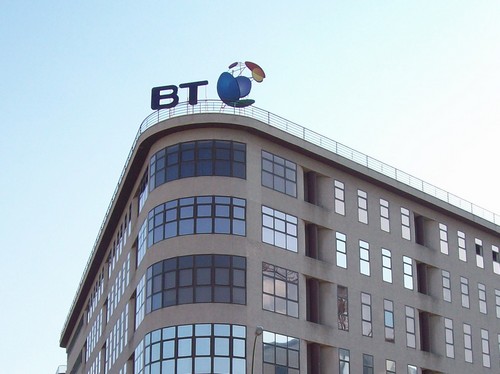
Image: Wikimedia
It provides services in fixedline and mobile telephony, broadband internet, digital television, fiber-optic communication and IT services as well. It has a primary and secondary listing on the London Stock Exchange and the New York Stock Exchange respectively. It’s also a constituent of the FTSE 100 Index.
The group’s history lies in the amalgamation of the telecom companies in Britain as British Telecom in the 1920s. The government’s privatised BT in 1984 by selling off its stake up to 51% to private investors. It was at that time the largest share issue in the world. BT had monopoly in telecommunications in UL which was abolished by the Telecommunications Act, 1984. In 1985, BT and Securicor Cellular created a JV to launch Cellnet. In 1991, UK’s telecom markets moved towards open markets. Despite the influx of new players in the UK telecom market especially in early 2000, BT remains the largest telecom player.
BT runs telephone exchanges, local loop connections, trunk network for the British fixed line telephones. It’s the only UK telecom operator to have USO or Universal Service Obligation i.e. providing fixed telephone line to any address in the UK as well as an obligation to provide public call boxes. The obligatory nature of the fixed line business and close regulation prompted BT to move into profitable businesses like broadband service and customized solutions in IT & telecom technology.
The focus areas of the group for the coming years will be on building infrastructure for fibre broadband and high speed internet continuing to work with the government to take fibre coverage to 95% of the UK. It plans to bolster BT mobile services by the proposed acquisition of EE in 2016, giving them access to UK’s most advanced 4G network and creating a plethora cross-functional products that provide innovation communication services.
Revenues: $ 14.96 billion
Subscribers: ~31 million
Ranking Methodology:
Telecommunications include wireless and fixed line telephone services, broadband internet services as well as broadcasting. For the multiple players competing in the UK telecom market with telecom services spanning across the given businesses, revenue is a fair metric to determine the scale of operations. A shortlist of the top 20 companies were made based on the revenues generated, off which the top 10 were selected
This article has been researched & authored by the Content & Research Team which comprises of MBA students, management professionals, and industry experts. It has been reviewed & published by the MBA Skool Team. The content on MBA Skool has been created for educational & academic purpose only.
Browse similar company lists across 50 sectors. The top brand lists category covers rankings of companies based on various parameters.
Continue Reading:
What is MBA Skool?About Us
MBA Skool is a Knowledge Resource for Management Students, Aspirants & Professionals.
Business Courses
Quizzes & Skills
Quizzes test your expertise in business and Skill tests evaluate your management traits
Related Lists
All Business Sections
Write for Us